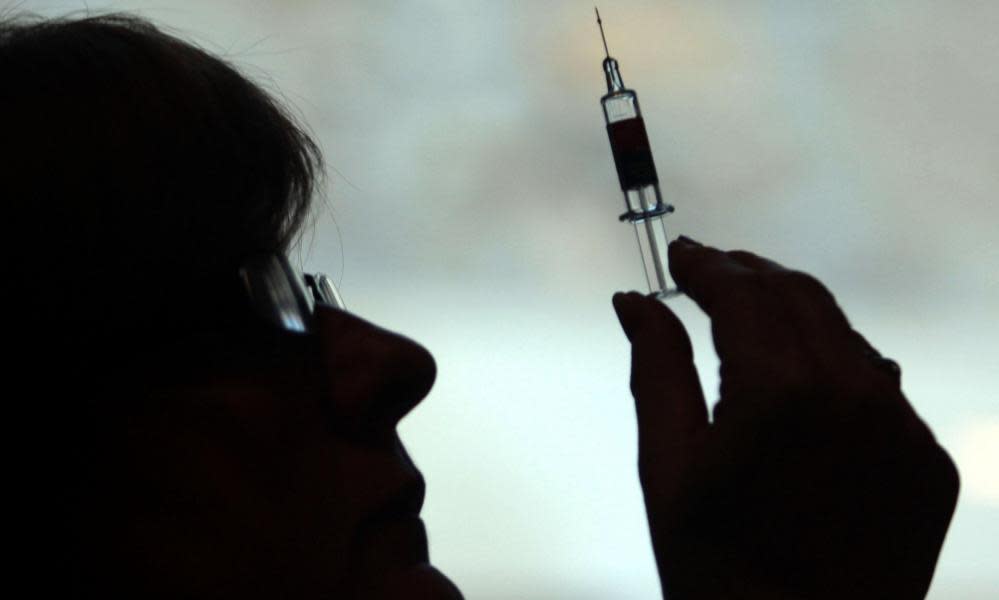How Donald Trump was silenced | Emma Brockes

Despite living in the US in Trump end times, I’m not often shocked. Scandalised, depressed, outraged, yes; but not really shocked. But I was at the weekend, standing in the playground with another mother when she said something so outlandish I couldn’t believe what I’d heard: that she’d had a tough month, what with getting the city to exempt her kids from having vaccinations.
Now, getting into it with another parent about vaccinations is like bringing up the Middle East on a Guardian comment thread. People go insane. There’s a debate raging right now on one of the mummy blogs I read, in which a handful of women are losing their minds, having been mauled by other users for their decision to “space out” their kids’ vaccinations.
But this wasn’t spacing out. This was full-on exemption, which I didn’t even know was legal. “Oh yes,” she said, “the city of New York permits it on religious grounds, even for kids in the public school system.” She wasn’t doing it for religious reasons, as it happened, but because she believes vaccines are dangerous.
“That’s nuts!” I said, and she looked taken aback and told me that the Centers for Disease Control is suppressing evidence because it’s in the pay of the drug companies. I couldn’t have been more surprised if she’d said the moon landings were faked. “There’s no scientific evidence whatsoever,” I said and used the term “anti-vaxxer”, and she looked angry and things got more socially awkward from there. Honestly, it was thrilling.
“You know Trump’s on your side?” I said, which in New York should be enough to end any argument.
“Yes!” she said and gave me a dark look. “And he’s been silenced.”
Grief by algorithm
Sheryl Sandberg is everywhere this month with the release of her book, Option B, a chronicle of her grief after the death of her husband. Something about it struck me as curious.
A few caveats first. People are, of course, entitled to grieve any way they like. And Sandberg isn’t trying to be Joan Didion. Plus I like Sandberg. I think a lot of the criticism directed at her has been spiteful.
But when I read the interview with her in Time magazine last week, it gave me the creeps. Partly because it was full of horrible lines (“suddenly, Superwoman became very human”). And partly because, a few days earlier, I’d finished reading Dave Eggers’ novel The Circle, a vicious takedown of Facebook.
Sandberg was talking about the mistakes she thinks she made while in the depths of her grief, labouring under the misapprehension of the three Ps: the idea that adversity is personal, pervasive and permanent. There was nothing wrong with this, except that it sounded like the application of a business rationale – a “scalable solution” – to personal experience. It had the bright ring of someone searching for an algorithm to manage human emotions. Given her power and position, it made my blood run a little cold.
First date soup
Then again, maybe we need it. A man and a woman at the soup bar in my local supermarket this week, on what was clearly a first date: “What are you having?” he said, solicitously.
“The chilli.”
“The chilli?”
“Yeah. What are you having?”
(Fraught pause.)
“The chicken.” (There was no chicken.)
“ … noodle soup?” she said.
“Um. The turkey!” (There was no turkey.)
“You’re having the turkey … chilli?”
(Dreadfully embarrassed.) “Ignore me, I’m loose change today.”

 Yahoo News
Yahoo News 
